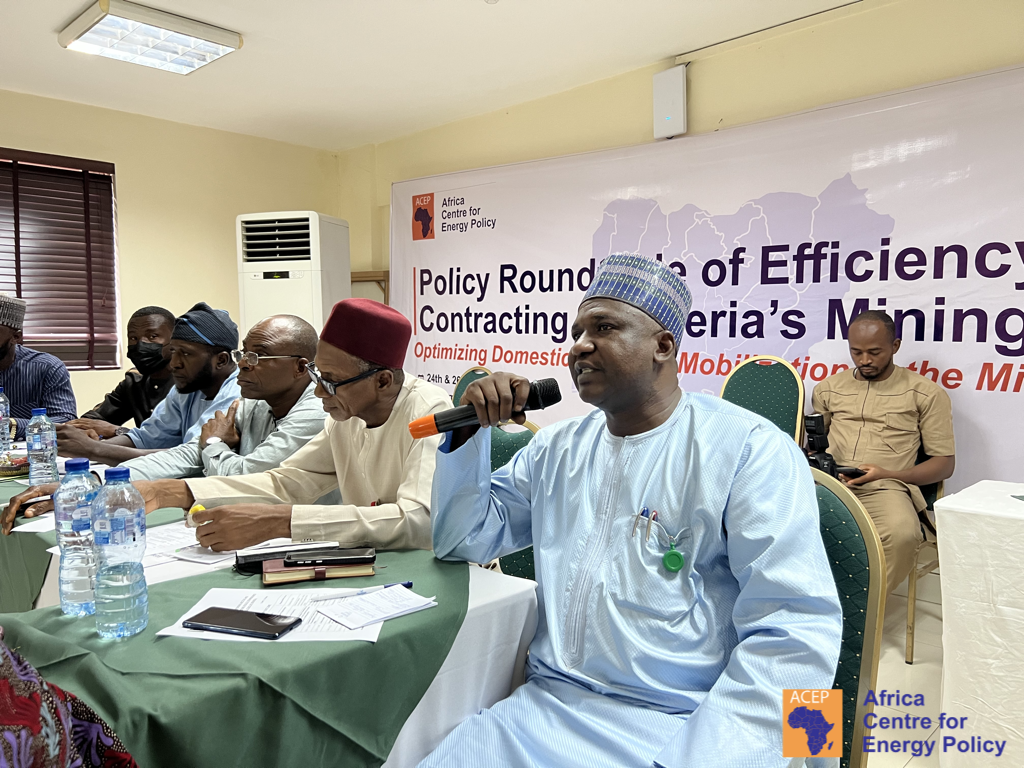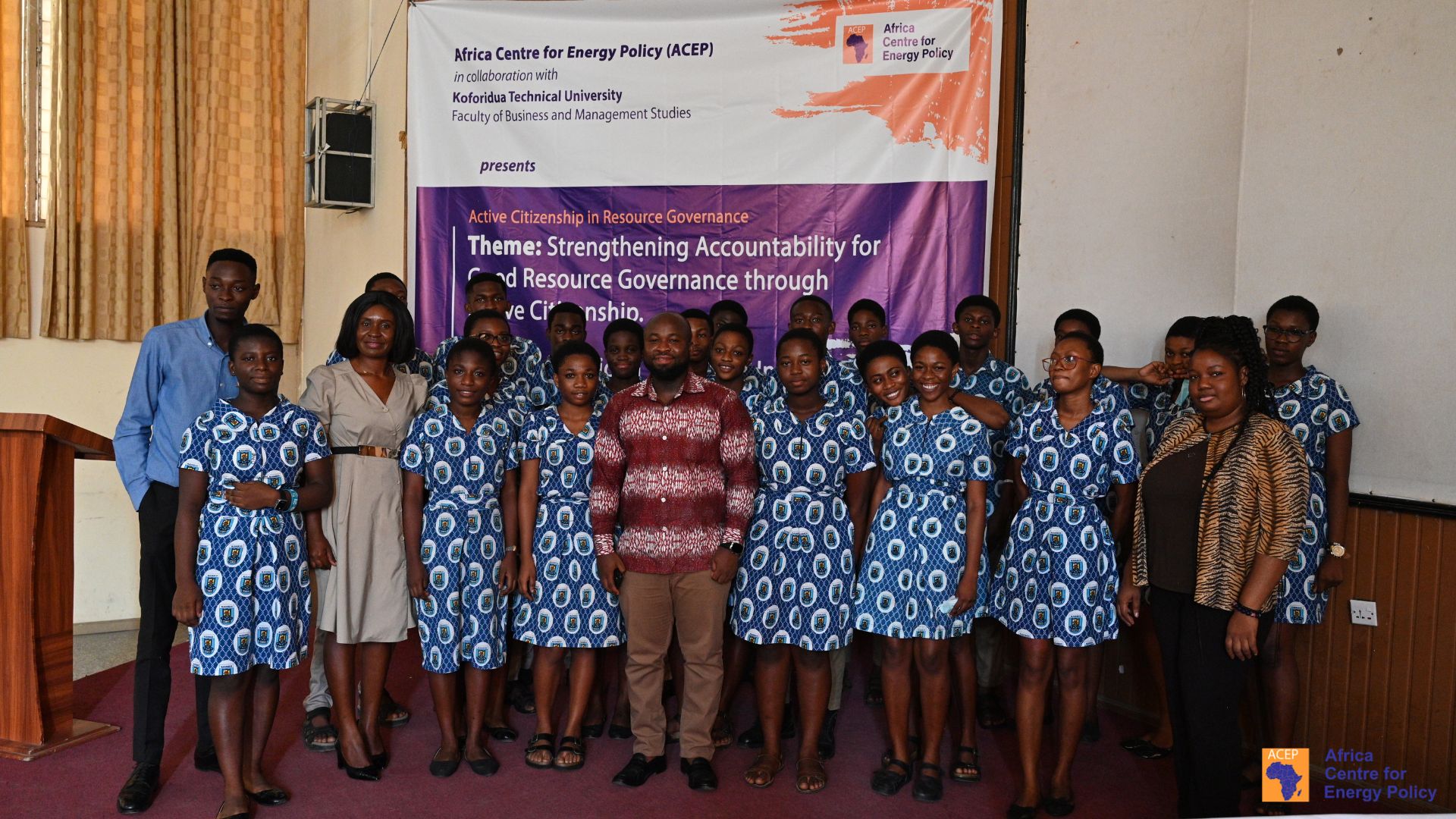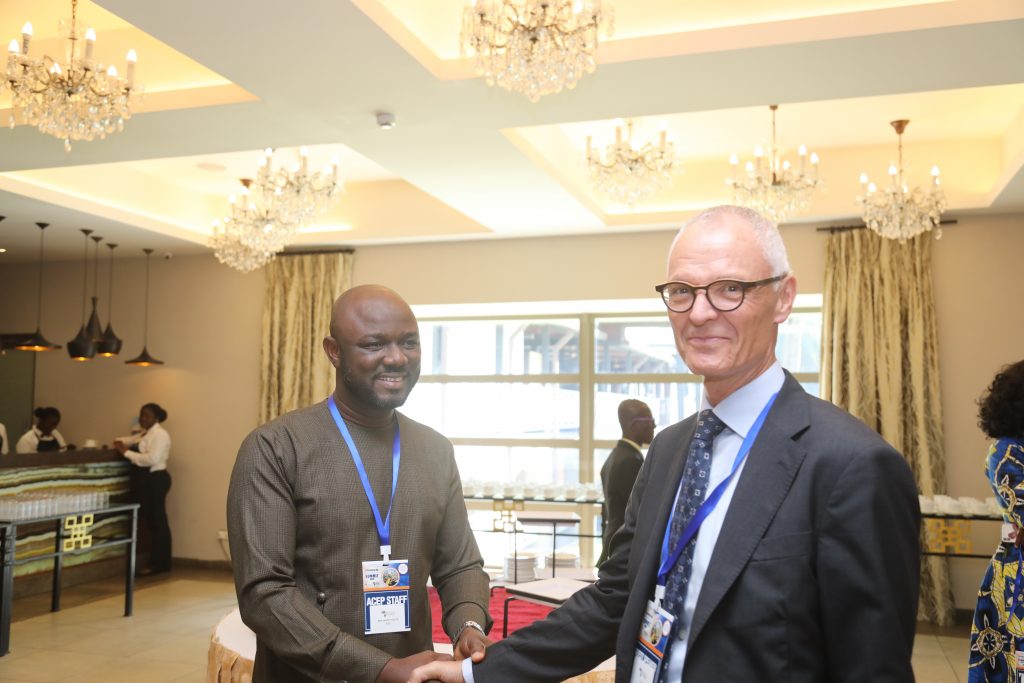Rejoinder: GNPC’s Responses to Assertions in ACEP’s Statement on GNPC 7% Acquisition in Jubilee and TEN Fields
The Africa Centre for Energy Policy (ACEP) has sighted the response of Ghana National Petroleum Corporation (GNPC) to ACEP’s statement issued on the 13th of January 2022. Before responding to the specific comments in GNPC’s response, ACEP will want to repeat the following facts from the statement issued on the 13th of January 2022.
- It is a fact that a company in Cayman Islands was assigned the 7 percent interest in the Occidental (Oxy) transaction.
- It is a fact that the company has two directors: Dr. KK Sarpong and Mr. Freddy W. Blay.
- It is a fact that the beneficial ownership of the company is not known and not verifiable from the General Registry of Cayman Islands by any individual or authorityin Ghana under Cayman’s secrecy laws.
- It is a fact that ACEP did not assign ownership of Jubilee Oil Holding Limited (JOHL) toany entity or persons in the statement issued on the 13th.
- It is a fact that the tax credit from the Oxy transaction was used to pay for the 7%interest acquired for JOHL.
We have attached the response from GNPC for the reference of readers and re-join as follows.
Response 1
The Corporation confirms that the Finance Ministry granted a loan for the acquisition of the 7% of Occidental assets in Jubilee and TEN fields. However, it decided not to comment on the source of the money, which ACEP had indicated was the tax credit from the Oxy’s transaction. ACEP pointed out that using tax revenue by the ministry for a loan was irregular and contravenes the Petroleum Revenue Management Act (PRMA), Act 815 as amended. The law requires that all petroleum revenues are paid into the Petroleum Holding Fund (PHF) and appropriated through the national budget for the purposes of supporting the budget, savings for smoothening the oil revenue component of the budget and savings for future generations.
The PHF is the sole destination for all petroleum revenues to the state. The role of the Ghana Revenue Authority (GRA) ends at directing payments into the fund. Anadarko WCTP Company was mandated by the Act to directly pay into the PHF any tax revenue. Section 3 (2) of the Act states “The petroleum revenue assessed as due in each month shall be paid by direct transfer into the Petroleum Holding Fund by the fifteenth day of the ensuing month by the entities obliged to make the payment”.
Therefore, petroleum tax revenue cannot be swapped, encumbered, or diverted at the instruction of any public official. It is advisable for Oxy, Ministry of Finance and GRA, who have jointly violated the Act to take steps to remedy the obvious illegality that threatens the viability of the PRMA.
Response 2
GNPC responds that the Corporation has not set up an offshore company, but it does not deny the existence of JOHL which it claims to own. The claim that Oxy, through its subsidiary set up Jubilee Oil Holding is not an important debate for ACEP. The fact though is that an independent international oil company, pursuing its shareholders value can register a company in a tax haven for that purpose.
GNPC did not have to acquire Jubilee Oil Holdings for the transfer of assets sitting in Ghana. The company that was being disposed of by Oxy was Anadarko WCTP Company which is a Ghana registered company contrary to GNPC’s claims that it was registered offshore. Kosmos Energy Holding Ghana Limited acquired the interest of Anadarko WCTP Company. All of these were done in respect of Ghanaian laws and the jurisdiction where the assets domicile as reported to the Security and Exchange Commission (SEC) in the US.
GNPC admits it acquired the interest and paid the full settlement of US$164,798,691.00 on 19th October 2021, 4 days after the ministerial approval for Jubilee Oil Holdings. Subsequently, Jubilee Oil Holding has become part of the Joint Operating Agreement (JOA) on the two fields. This means that JOHL has been operating in Ghana for the past three months without fulfilling the requirements of Ghanaian laws. This is a precedent that must be remedied with sanctions. Otherwise, the entire industry becomes ungovernable with similar violations.
Response 3
The Corporation in its response, confirms what ACEP suspected it wants to do; hide the assets in Cayman Islands. For the Corporation to admit that it intends to register JOHL as a local company means that it does not intend to bring the ownership of the asset into Ghana. Our critique of the processes did not seek to encourage the Corporation to keep the assets in the Cayman Islands. We were highlighting the bad precedent the Corporation has set. ACEP still maintains that the assets should be controlled and managed in Ghana through GNPC or its appropriate subsidiary immediately and the Cayman Company closed.
Response 4
As far verifying the Beneficial Ownership of Jubilee Oil Holding is concerned, citizens of Ghana are handicapped. It is a fact, that in secret jurisdictions, there could be layers of complex ownership structures that make it impossible to verify who the ultimate beneficiaries are. Cayman Islands has secrecy laws that facilitate anonymity of ownership; second most robust secrecy jurisdiction in the world. Therefore, the claim that GNPC owns JOHL one hundred percent cannot be verified independently. GNPC knows that Beneficial Ownership data is not available from the general search with Cayman Island Registry. That is why ACEP could only publish the available data which shows when the company was registered and the directors who hold the company in trust. All other relevant information is not available to the public.
Response 5
ACEP has not stated anywhere that the Corporation has always not operated within the remit of the PRMA. ACEP’s position is that the use of petroleum tax revenue as loan to the Corporation violates the express dictates of the PRMA. The Corporation that markets Ghana’s crude oil knows that all petroleum revenues are due the Petroleum Holding Fund through direct transfer from the entities obliged to pay, as stated in Section 3 of the Act.
Conclusion
ACEP maintains that the processes used to acquire interest in the Jubilee and TEN fields failed to pass transparency and accountability test. The Ministry of Finance, GNPC and Oxy violated the PRMA for not ensuring that the tax revenue was paid into the PHF. The Ministry of Energy and the Petroleum Commission abused the industry practice for allowing JOHL to operate in Ghana for the past three months without satisfying the legal requirements for businesses to register in Ghana before participation in the industry.
The attempts to hide local assets in tax havens does not only challenge transparency and accountability mechanisms in Ghana but also undermines regional efforts championed by the African Union, and the Economic Commission for Africa, civil society, and independent researchers on combating secrecy, base erosion and profit shifting. The Mbeki High Level Panel on Illicit Financial Flows from Africa estimates that illicit financial flows facilitated by tax havens and secrecy jurisdictions deny the continent more than $50 billion annually.










